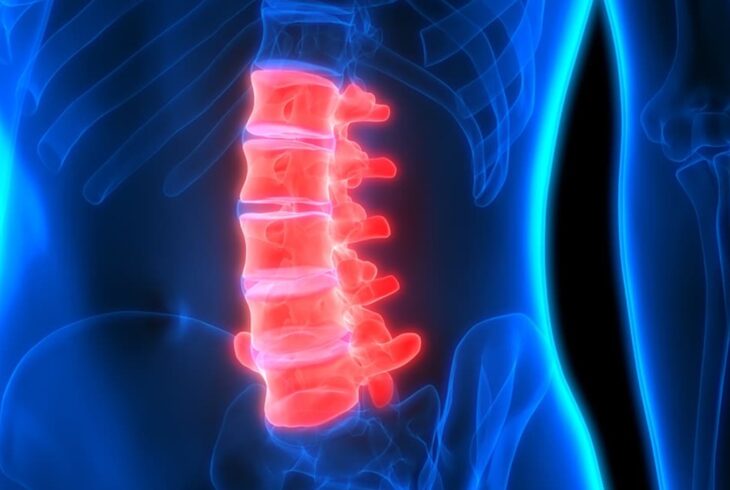Brain injuries are unfortunately a common occurrence. It’s estimated that nearly a quarter of a million Australians have a brain injury. There are many things that can cause brain injuries, including trauma, strokes, substance abuse, and even diseases like Parkinson’s. In many cases, you can’t avoid brain injury but have to learn to deal with it.
The most important step when you think you or a loved one has a brain injury is to speak to a qualified and reputable neurosurgeon like sydneybrainandspine.com. They can give you a proper diagnosis and help you get the most effective treatment. The good news is that there are always options.

Source: Viles & Beckman, LLC
Contents
How Spinal Cord Injuries Cause Brain Issues
The brain is the central computer in your body. It sends signals to the rest of your body telling muscles and organs to move, ensuring you can breathe, your kidneys function properly, your heartbeats, and you move where you need to go.
Signals are sent back to the brain to confirm the necessary actions are being taken, allowing it to maintain control and even boost performance when necessary.
All these signals are sent through the nerves in your body. The bulk of these nerves are located within the spinal column. There’s a good reason for this, the spinal column is designed to strengthen your body and protect these nerves.
Of course, if the spinal column becomes damaged the nerves within it can also be damaged. The result is that signals from and to the brain don’t get transmitted properly. This can result in your body not doing what you want it to.
The number of issues your body and brain will face will be dependent on where the injury occurs. In most cases, the nerves below the injury will be affected. The lower the spinal injury the less control you’ll lose over your body.
Of course, in extreme cases the spinal cord is damaged near the top, causing issues across your body.
It should be noted that the brain itself is not damaged, it is simply unable to get the necessary signals to the parts of your body that need them. This can be particularly frustrating for you as you’ll feel in complete control of your body but won’t actually be able to control parts of it.
In some cases, this loss of signals from the brain results in paralysis. The limb may still move to involuntary touches, such as a foot flinching from being tickled. But, you won’t be able to control the movement.

Source: SCI Progress
How Spinal Cord Injury Affects Your Body
There are several different types of spinal shock injury, you’ll want to see your neurosurgeon to identify which one you are dealing with and which treatment option is best.
In the first instance, you’ll probably visit your general practitioner. They can identify the issue and refer you to have the matter officially diagnosed and treatment started. It can help to be aware of the most common effects spinal cord injuries have on your body.

Source: SCI Progress
-
Spinal Shock
Spinal shock is generally a result of trauma although it can be from an infection. This when the spinal cord has been jarred or damaged, but the nerves inside haven’t been damaged. Unfortunately, the resulting inflammation can cause the same issues and leave you unable to move certain parts of your body.
The good news in this instance is that the spinal cord will heal, the inflammation will go down, and you should regain all normal movement.
However, it is important to follow your doctor’s orders and exercise regime. This will help you not to lose muscle mass while your spinal cord heals.
There is no treatment to help with this, spinal shock heals by itself and can take weeks.

Source: The Economic Times
-
Breathing Issues
After a spinal cord injury, it is common for the muscles around your lungs to become weaker. The effect on your lungs will be determined by where the spinal cord injury is.
Any injury at C4 or higher will limit the movement of your diaphragm, making it difficult to take deep breaths. T1 to T7 injuries affect intercostals muscles and higher T injuries affect the abdominal muscles. All three sets of muscles are needed for efficient breathing and coughing.
Unfortunately, weakened muscles make it more difficult to cough effectively. Coughing is designed to clear your lungs of bacteria and secretions. If you have a weak cough you’re more likely to get lung infections, including pneumonia.
In the short term, you may need to have a tracheostomy completed. This puts a tube in your windpipe allowing you to cough up substances from your lungs easier. The trash can be temporary or permanent depending on the injury.
You should note that it’s possible to have talking tracks that allow you to continue using your voice.

Source: waystomaintainbloodpressure.blogspot.com
-
Low Heart rate & Blood pressure
This is a result of the brain not being able to control the heart rate or pressure. It usually sends signals to constrict blood vessels to maintain healthy pressure and rate.
When a spinal cord injury occurs the vessels below that point in the spine will dilate, reducing blood pressure.
Inability To Control Temperature
Due to the loss of signals in your body, you may find it’s impossible to get goosebumps or sweat below the injury level. This can make it difficult or impossible for your body to control its own temperature.

Source: Slo Drinks
Other Issues
The nerves in the spinal cord affect all parts of your body, it can be difficult to know what will be affected in individual cases. But, it can include:
- Difficulty swallowing
- Bowel and bladder control issues
- Deep vein thrombosis
- Breakdown of skin
- Muscle stiffness
- Locked joints
The list goes on. Fortunately, you can receive plenty of help and advice to guide you through the injury and regain your quality of life. It starts with a visit to the neurosurgeon who will help to identify the issues and find the best treatment for you.
